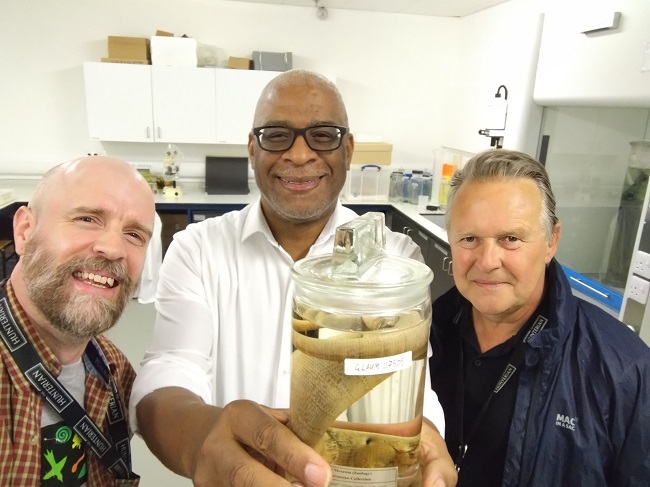Researchers from the University of Birmingham have received a grant worth over £275,000 from leading men’s health charity, Prostate Cancer UK to help develop a new test to accurately show how aggressive someone’s prostate cancer is, in order to help identify the best treatment for each individual man.
The grants was awarded as part of the charity’s £3 million Research Innovation Awards scheme following a competitive process and detailed assessment from international experts. The scheme encourages researchers across the UK to develop forward thinking, ambitious research proposals which challenge the status quo to help fight prostate cancer.
Current tests for prostate cancer can’t tell the difference between an aggressive prostate cancer which will spread quickly and needs immediate treatment, and one which may never grow enough to cause any harm. The study, led by Professor Paula Mendes, will use nanoparticles to test for specific proteins which indicate that the cancer is aggressive.
Professor Mendes said: “Prostate specific antigen, or PSA, is produced naturally by the prostate. A raised level in the blood can indicate a problem, but this doesn’t always mean cancer. This research uses coloured nanoparticles which bind to sugars attached to PSA proteins to see if they can help us tell whether there is actually cancer, and if so, how aggressive it’s likely to be.
We’re so grateful to Prostate Cancer UK for funding this research to help us show how this would work in practice. If we’re successful, we could start clinical trials in the near future, and hope to eventually see this test rolled out for men across the country.”
Prostate cancer is the most common cancer in men and the disease kills one man every 45 minutes in the UK, amounting to more than 11,500 men every year.
Dr Matthew Hobbs, Director of Research at Prostate Cancer UK said: “Prostate cancer is on target to become the UK’s most common cancer by 2030, and every year over 9,000 men are diagnosed with prostate cancer too late and told that it can’t be cured.
That’s why Prostate Cancer UK is committed to funding innovative research like this to help find a reliable test which could be used as part of a national screening programme to help diagnose men before it’s too late. We’re using our expertise to identify and fund the most innovative research that will help us tame this disease.
To help us fund even more vital research, we’re encouraging everyone to sign up to March for Men, our series of mass participation walking events taking place across the UK this summer. Now in its third year, the event has raised an incredible £825,000 so far. But the march isn't over - we're still on the road to better tests, better treatment and better care. So, we'd like to ask you to pull your boots on again for an even bigger, even better March for Men in 2019.”
Professor Mendes continued: “Without a more accurate test to show how aggressive the cancer will be, it can be hard for doctors to know what will be the best treatment for a particular man. If successful, our long-term aim is for this technology to replace the PSA test, giving doctors more information to help them decide the best treatments to offer.
This is an incredibly exciting time for prostate cancer research and we’re proud to be part of a movement which could bring about real change for men within our lifetimes.”
In a bid to ramp up its fundraising Prostate Cancer UK launched three March for Men walks, in 2017, to help raise the vital funds needed for research.
Two years on, Prostate Cancer UK’s March for Men series includes walks in Glasgow, Manchester, Nottingham, Bristol, Leeds, Liverpool and London – with more to be announced soon. So far, 6,300 walkers have raised over £825,000 in funds to stop prostate cancer being a killer.

















